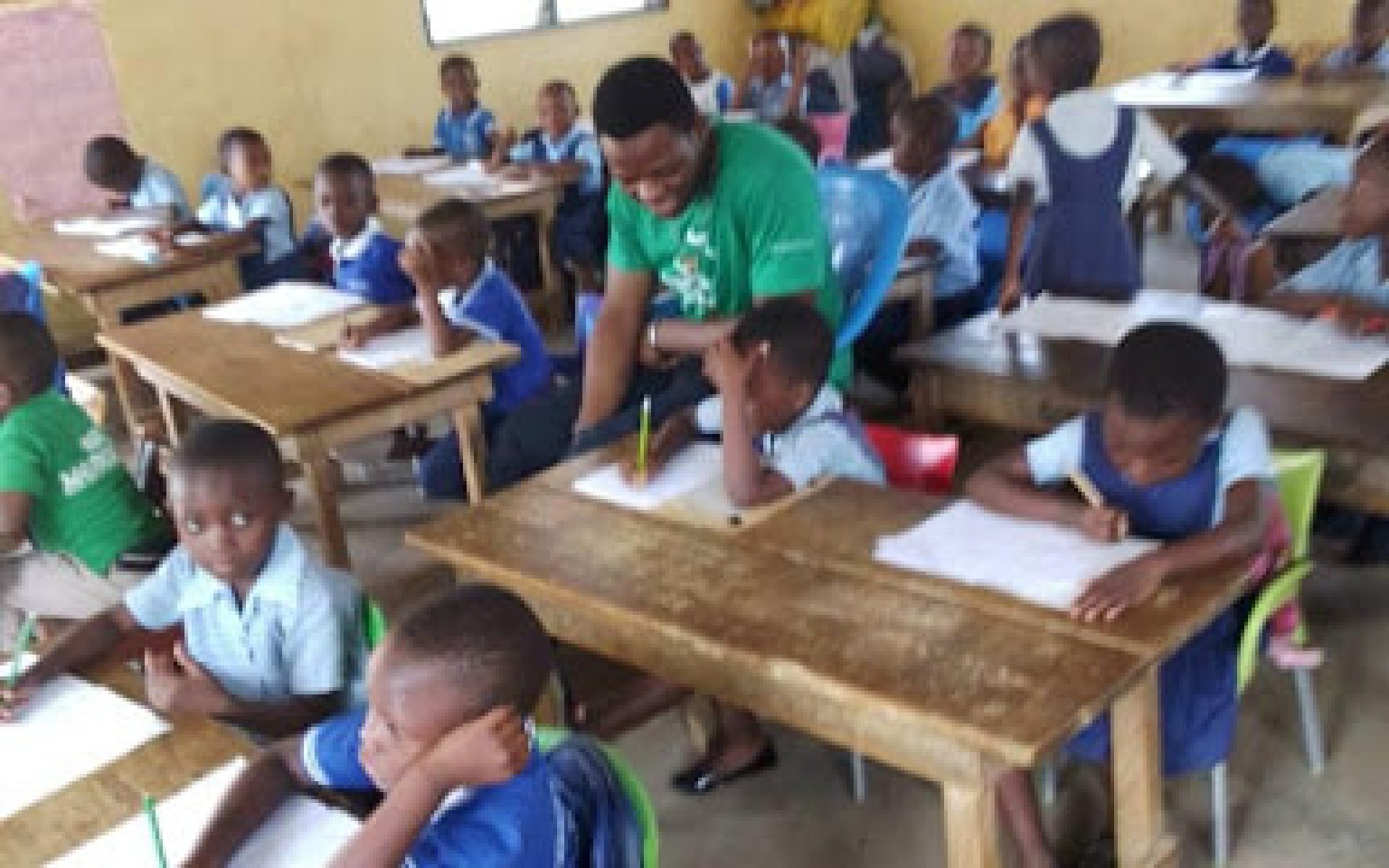Written by CorpsAfrica/Ghana Volunteer Mr. Victor Annani Togborlo
It was an ineffable nostalgia when I entered the KG2 classroom. At the same time though, I couldn’t help feeling slightly wistful about a congested class of 45 young holy souls being taught by Miss B alone. Memories of my early days in school were flickering through my mind as I gazed at these young ones doing exactly what we did back in the day – going under the desks, disrupting class, frequent movements, etc. I sure was one of the most vivacious kids who bothered my KG teacher the most and so I smiled as Sampson’s name was mentioned too many times to put him in order. He was the zestiest.
This was only my third day in the South Dayi District and Kpeve Model Basic School was my first school visited in my attempt to integrate into the District for a volunteer experience that will span over the next few months.
In a short conversation with the class teacher, she mentioned the obvious congestion in the class as the most pressing challenge. To most people reading this, it will appear counterintuitive to say the congestion in the class is not a result of an inadequate number of teachers. The reality however is that the District Education Directorate had assured the school of posting new teachers to them if the school’s management ever made a request. The actual challenge – the lack of classroom space.
In a dialogue with the assistant head teacher, Stephen, I was awed by the achievements of the school over the past few years at both the regional and national levels. A national best teacher award (kindergarten category) won by the current headmistress, a national best student (Basic School category), first runner up of the national GH4stem Juneos challenge, and many more.
The story of the school’s exploits in the GH4Stem Juneos challenge was intriguing. Mawumenyo, the son of a fisher, who represented the school designed an artificial fish to serve as a pirate detector to give cell phone alerts to fishers like his dad whenever illegal fishers intruded on their area. Check it out here: https://fb.watch/ib-_SgFcOt/. Stunning right?
And to imagine that this is an invention of a basic school student whose school has no science practical equipment, let alone a science laboratory, only begs one question – what if these young ones experience an education where suitable teaching and learning materials/equipment exist?
Among the challenges Stephen mentioned are computers for their computer lab, a library, science practical equipment, and above all, a classroom block to reduce the congestion as some classes are currently over 70 students.
Are you an education enthusiast?
Do you care about the quality of the human resources of Ghana’s future?
Do you fantasize about a moment when our young ones are globally competitive in technology, medicine, engineering, etc.?
If your answer is “yes” to any of these questions, then avert your mind to the typical Ghanaian classroom in the underserved schools and if you have the wherewithal to support any school, don’t relent.
Guess what is on my mind concerning these challenges.
A community-led development approach, the CorpsAfrica development style.
Watch this space………

